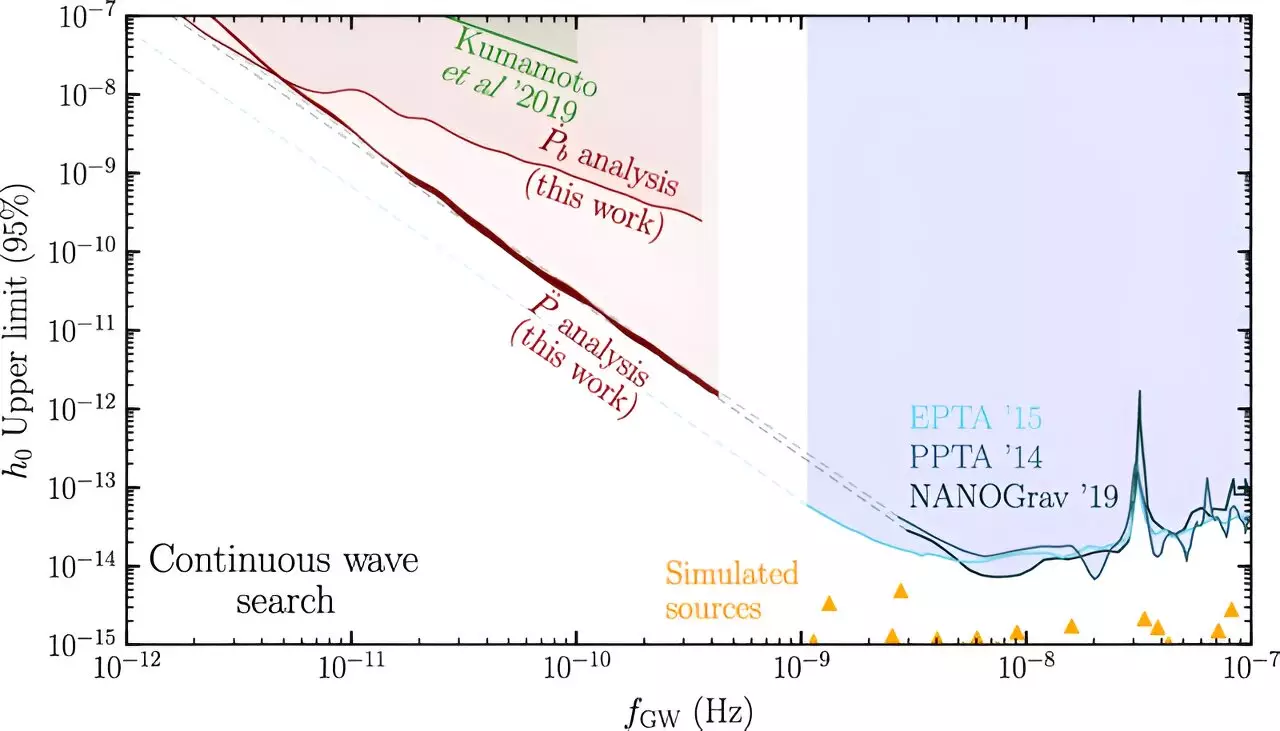

In an exciting breakthrough in the field of astrophysics, a team of physicists has devised a revolutionary method to detect gravity waves with unprecedented precision. These gravity waves possess such low frequencies that they may hold the key to unraveling the mysteries surrounding the early phases of mergers between supermassive black holes, which are among the heaviest objects known to exist in the cosmos.
The method developed by the physicists allows for the detection of gravitational waves that oscillate at a frequency of just once every thousand years, a staggering 100 times slower than any previously measured gravitational waves. According to JEFF DROR, Ph.D., an assistant professor of physics at the University of Florida and co-author of the study, these waves originate from the farthest corners of the universe and have the potential to influence the way light travels. The implications of studying these waves from the early universe are profound, as they could provide crucial insights into our cosmic history, much like the discovery of the cosmic microwave background.
Gravitational waves are comparable to ripples in the fabric of space-time, offering valuable information about their origin and age based on their frequency and amplitude. The new detection method proposed by Dror and his colleague, William DeRocco, a postdoctoral researcher at the University of California, Santa Cruz, involves analyzing pulsars and neutron stars that emit radio waves at regular intervals. By observing a gradual slowdown in the arrival times of these pulses, the researchers were able to identify gravitational waves with frequencies as low as 10 picohertz, a significant advancement compared to previous efforts.
While gravitational waves with frequencies around a nanohertz have been previously detected, their origin remains a topic of speculation and debate within the scientific community. One prevailing theory suggests that these waves stem from the mergers of supermassive black holes, offering a new avenue for studying these enigmatic cosmic entities. Another hypothesis proposes that cataclysmic events in the early universe may have produced these waves. By delving into gravitational waves at even lower frequencies, researchers hope to differentiate between these possibilities and gain further insights into the evolution of the cosmos.
Looking ahead, Dror emphasizes the importance of analyzing newer datasets to enhance our understanding of gravitational waves and their implications for cosmic evolution. The utilization of advanced computational tools, such as UF’s HiPerGator supercomputer, enables researchers to perform intricate simulations on vast datasets, expediting the process of unraveling the complex history of the universe. As technology continues to advance and observational capabilities improve, the quest to detect and interpret gravity waves heralds a new era of discovery in astrophysics.
The development of novel methods for detecting gravitational waves opens up a realm of possibilities for uncovering the secrets of the universe and shedding light on the fundamental processes that govern the cosmos. By pushing the boundaries of scientific inquiry and leveraging cutting-edge technologies, researchers are poised to make groundbreaking discoveries that will reshape our understanding of the universe and our place within it.
Natural gas leaks are a growing concern in both urban and rural settings, with potential…
Recent groundbreaking research at the University of Vienna has unveiled a novel interplay of forces…
In recent years, perovskites have garnered significant attention in the fields of materials science and…
For decades, astronomers have probed the depths of the Milky Way, grappling with two perplexing…
Foreign direct investment (FDI) in developing nations has long been heralded as a path to…
As spring beckons in April and May, stargazers have the unique opportunity to witness nature's…
This website uses cookies.